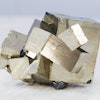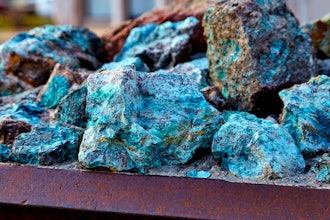TOKYO (AP) -- Confidence at major Japanese manufacturers marked its sharpest drop in 34 years, a key central bank survey showed Monday, further evidence that the world's second-largest economy may be headed for a deep recession as companies brace for more global turbulence.
The Bank of Japan's "tankan" quarterly survey for December showed that its closely watched confidence index for large manufacturers at minus 24 -- the steepest fall since February 1975. That figure is the lowest level in since March 2002, when the index hit minus 38.
Japan Inc. has grown increasingly pessimistic in the last the last three months amid slumping global demand, with major exporters including Sony Corp. and Toyota Motor Corp. slashing production, jobs and profit expectations. The yen's surge to a 13-year high on Friday only adds to the pain by eroding exporters' overseas earnings.
The latest number, largely in line with economists' dire forecasts, was far worse than the minus 3 reading September survey.
The figure represents the percentage of companies saying business conditions are good minus those saying conditions are unfavorable. The lower the number, the greater the pessimism.
"The result confirms that the economic downturn has gathered momentum," said JP Morgan economist Miwako Nakamura, who highlighted that confidence fell more sharply among automakers.
Merrill Lynch economist Takuji Okubo described the tankan data as "terrible" but said the central bank is unlikely to cut its key interest rate -- already super-low at 0.3 percent -- because that would discourage banks from lending. The Bank of Japan's policy board begins a two-day meeting starting Thursday.
"As interest rates gets close to zero, there is really no incentive for people to trade in the money market," he said. "So that's why BOJ wants to keep at least some interest so that people keep trading."
Instead, the Bank of Japan is likely to take other steps to pump more cash into the system to ease the growing credit crunch reflected in Monday's data, Okubo said.
Major manufacturers in the latest tankan reported far tighter bank lending conditions from three month ago, with the index measuring lending attitudes down to minus 4 from 13.
Japan's economy has already contracted for two straight quarters -- the definition of a recession -- and the slowdown is worse than first thought. The economy shrank at an annual pace of 1.8 percent in the third quarter, down from the initial estimate of a 0.4 percent contraction.
Some of the country's biggest brand names are taking dramatic steps to cope. Sony last week announced plans to slash 8,000 jobs around the world, or about 5 percent of its work force in a bid to bolster its bottom line. It also lowered its full-year earnings projection 59 percent from the previous year.
Toyota has also cut its net profit forecast for the year ending March 2009, projecting net profit will be a third of the previous year's earnings. Japan's biggest automaker has also lowered its global production forecast to 8.24 million vehicles for the fiscal year ending March 2009 and is expected to downgrade its projection for the following year at a news conference on Dec. 22.
On Friday, Japanese Prime Minister Taro Aso on Friday announced a 23 trillion yen ($255 billion) stimulus package to shore up his country's economy, with measures to spur employment and encourage lending.
"The global downturn is said to be a recession on a scale that comes once in a century," Aso said.
The tankan survey -- which polls more than 10,000 businesses -- showed that decline in confidence hit small- and medium-size companies even harder. Sentiment among small manufacturers and small non-manufacturers both tumbled to minus 29.
The confidence index for major non-manufacturers deteriorated to minus 9 from positive 1 in the September survey.
Despite the grim news, Japanese stocks markets rallied Monday on growing hopes that the U.S. government would find a way to rescue Detroit's ailing automakers and some relief over the dollar's rebound above 90 yen. The benchmark Nikkei 225 stock average rose 5.2 percent to 8,664.66.
The central bank survey also showed that large companies downgraded their capital spending plans and now expect to cut expenditures by an average 0.2 percent in the fiscal year through March 2009.
Companies expect business conditions to deteriorate further in the months ahead. The sentiment index for big manufacturers is forecast to drop to minus 36 in the next survey in April, while the figure for large non-manufacturers will likely fall to minus 14, the tankan showed.
Still, business sentiment remains above the lows hit during Japan's previous recession, when the large manufacturers' index plunged to minus 51 in December 1998.
Managers also said they expect an average dollar value of 103.32 yen during the fiscal year, slightly higher than their previous estimate of 102.82 yen. On Friday, the dollar fell as low as 88.16 yen, its lowest level since August 1995. On Monday, the dollar was trading at 90.81 yen.
The Bank of Japan surveyed a total of 10,408 companies between Nov. 10 and Dec. 12, of which 99 percent responded.






















